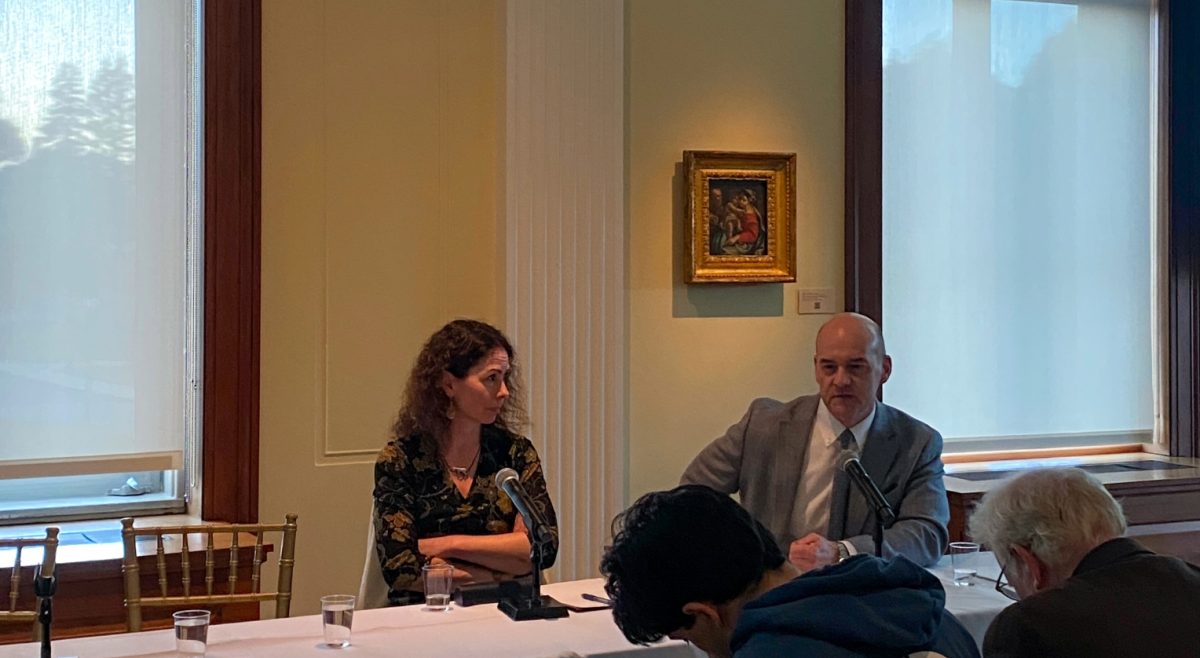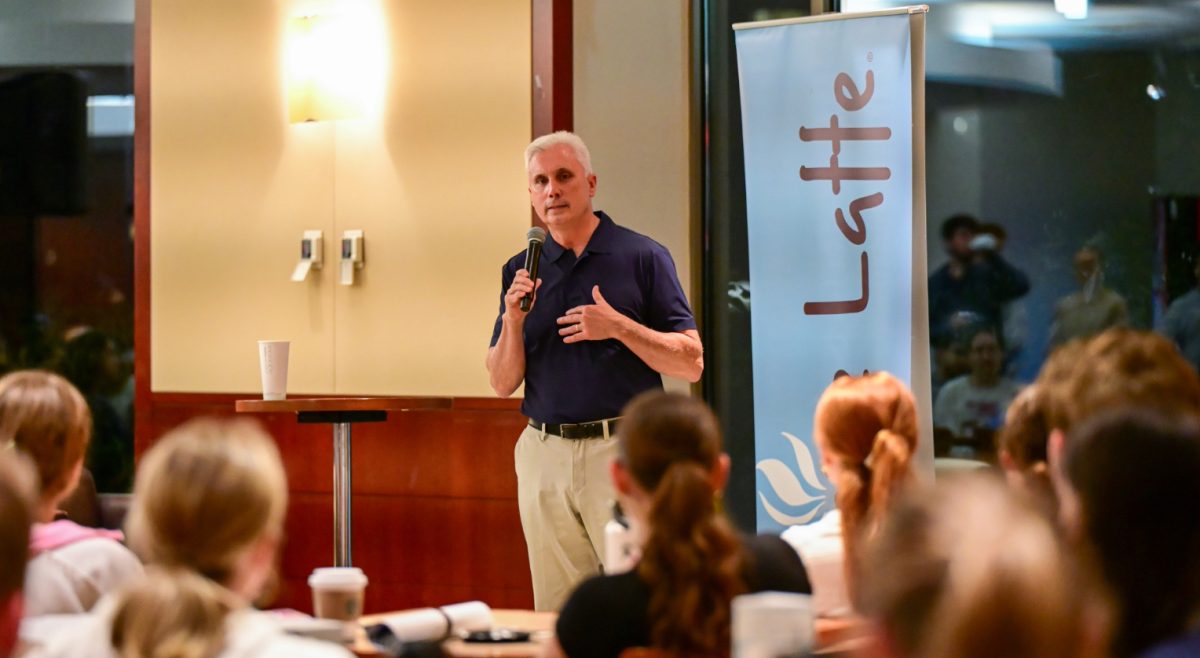The Portico Program and the Winston Center for Leadership and Ethics hosted a lecture titled “Doing What’s Right” on Nov. 19. The forum featured Dan Price, founder of Gravity Payments, who talked about his decision to use his business for social change.
Price made headlines recently for being one of the first CEOs to decide to raise the minimum salary at his company to $70,000 a year, in order to help employees make a reasonable living wage. He did so by taking a large cut out of his own salary.
Since then, he received the 2010 Small Business Administration National Young Entrepreneur of the Year award, given to him by former president Barack Obama, and was named Entrepreneur Magazine’s “Entrepreneur of 2014.” He now gives talks about his vision of ethical business in a world of inequality, in addition to running Gravity Payments.
Price began by asking the audience, which was made up mostly with freshmen in the Carroll School of Management, to think about their position in the world.
“Every single person in this room, just by virtue of the fact that you’re sitting here, has some amount of privilege, some opportunity for privilege,” he said. “So the key question that I wonder about is … what’s the responsibility that goes with that privilege?”
Price talked about his personal decision to take action against economic inequality. He noted that he was deeply disturbed both by how deeply a rent increase affected one of his friends and when he realized that his employees were probably unable to honestly tell him about their financial situations.
He then expanded upon the criticism he has gotten for his decision to give all of his employees a living wage.
“When you try to stick to your principles, when you’re willing to take risks, when you’re willing to get fired or unfairly criticized for that, you end up taking off like a rocket ship in so many ways that you could have never imagined or scripted ahead of time,” he said.
Before the forum ended, Price answered the audience’s questions. One student asked how employees could remain motivated with such a salary increase.
“So all of us are good people,” Price said. “And everyone outside of there is like, totally greedy, like, terrible people, right? And it’s like, no, we are all kind of motivated. Our companies don’t motivate us—they demotivate us. But what this does is it gives capability and license—if you’re paid a living wage, you feel licensed to make decisions to have a big impact.”
Featured Image by Jess Rivilis / For the Heights













